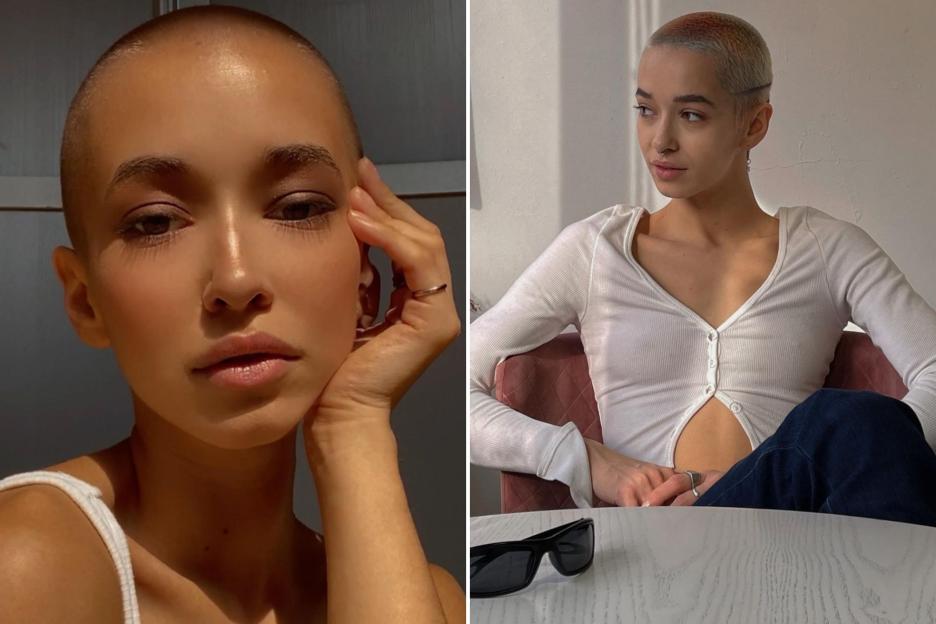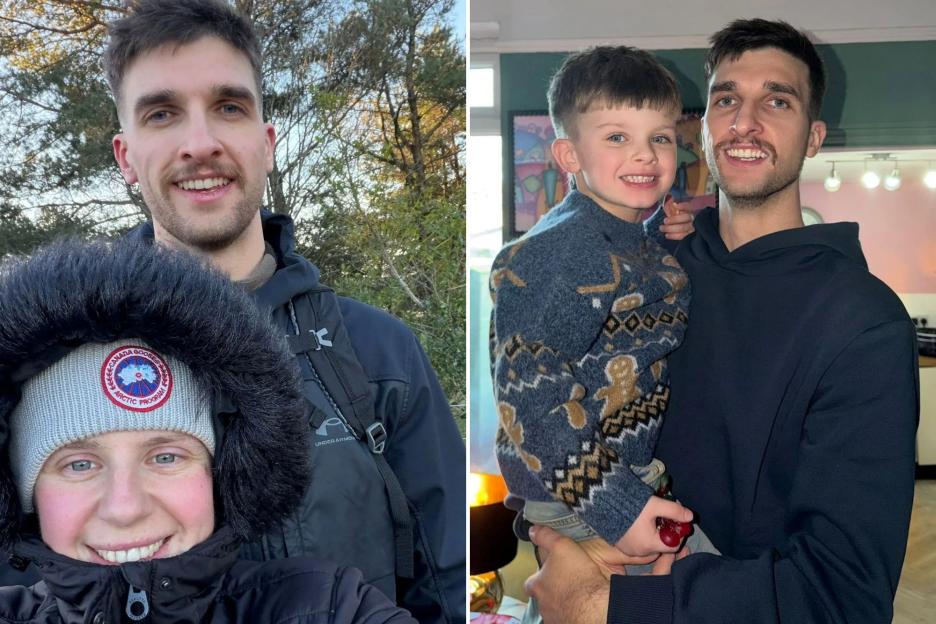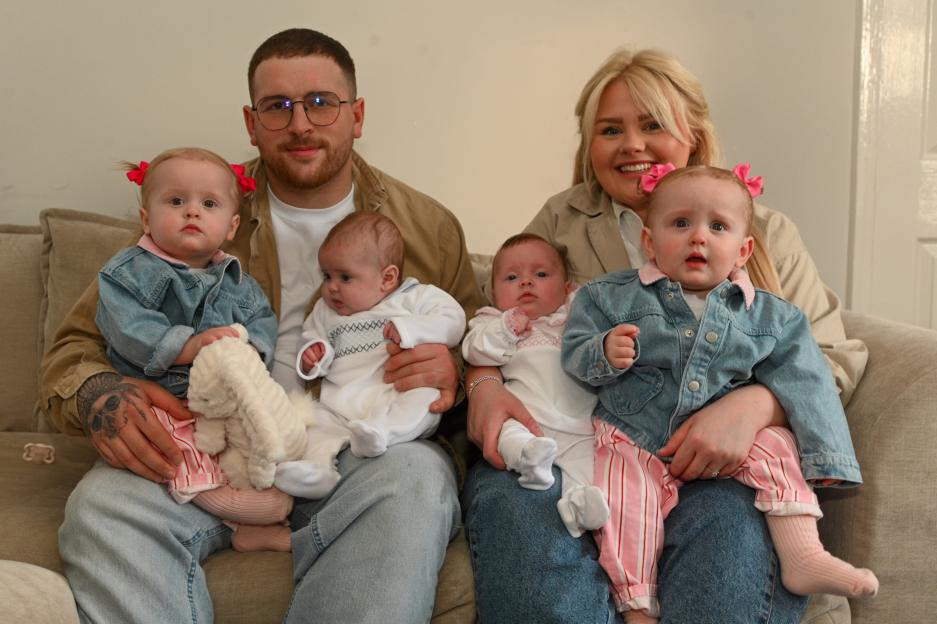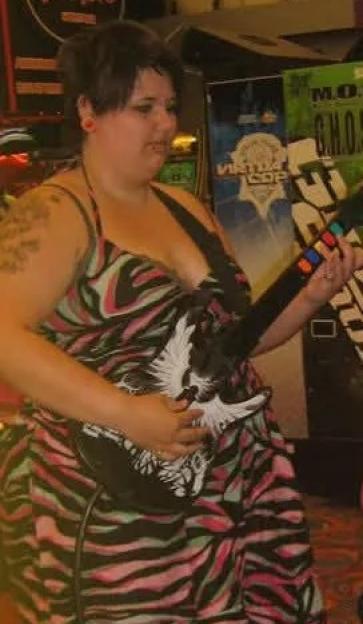INFLUENCERS are peddling animal dewormer and other dangerous alternative medicines as “cures”; for deadly illnesses like cancer in a sick bid to gain followers.
Experts have slammed the tips given out on as “scary”; and dangerous, warning people not to blindly follow influencers.
 TikTok has deleted many of the videos flagged by The Sun
TikTok has deleted many of the videos flagged by The Sun Some influencers are peddling dog dewormer as a cancer cure
Some influencers are peddling dog dewormer as a cancer cure Experts have said such videos can be dangerous
Experts have said such videos can be dangerousMany people have tried out the bizarre “hacks”;, such as the “migraine meal”; of drinking coke and eating McDonald’s chips that went viral recently.
But some TikTokkers are claiming to fix serious and life-threatening illnesses with a quick and easy “magic potion”; you can whip up at home.
Videos seen by The Sun have influencers confidentially telling their followers that taking dewormer for dogs or horses â which is harmful to humans â gets rid of cancer.
Others posted recipes for homemade herbal teas, such as soursop tea, saying that they drank it every day for two weeks and it cured various diseases.
Many influencers promote supplements that contain the ancient Indian herb ashwagandha â also saying it helps cure anxiety and a poor sex drive.
Hundreds of social media users flocked to the comments sections, begging for more information, with experts worried many people will take such advice as gospel.
Cancer sufferers are even among the commenters asking for recipes and recommendations to fight their deadly disease.
When The Sun contacted TikTok about the videos peddling alternative cancer cures, those that we flagged were removed.
VIRAL DOESN’T MEAN VALID
Michael Baah, who is a cancer rehab coach, said it is “scary”; people are relying on for health advice.
He explained: “The health advice I see on TikTok lately is wild. One minute it’s ‘walk 10k steps,’ the next it’s ‘eat pickles to cure cancer’ or ‘bite a lemon to stop anxiety.’
“And the scary part? People are actually giving it a go.
“I coach cancer rehab clients every week, and I always tell them, if you’re considering any supplement or remedy, speak to your consultant first.
“Your health isn’t a trend, and it shouldn’t be treated like one.
“Some of these so-called cures like dog dewormer, fermented pickles, or herbal teas are dangerous when taken seriously.
Your health isn’t a trend, and it shouldn’t be treated like one.
Michael Baah, cancer rehab coach
“Just because something is “natural”; doesn’t mean it’s harmless, and just because it went viral doesn’t make it valid.
“If anything, it shows how easy it is to spread false hope to vulnerable people.”;
Often, the videos point to the online shop in the app where people can buy the supplements mentioned.
This advice â mostly from people without any medical knowledge â could lead to patients turning away from vital treatment.
 Mental health cures are also being peddled
Mental health cures are also being peddled tiktokers-cancer-cures-sipplied-via-1004321750
tiktokers-cancer-cures-sipplied-via-1004321750 A post claiming horse dewormer can cure cancer
A post claiming horse dewormer can cure cancer Some videos claim fruit is better than chemo
Some videos claim fruit is better than chemoOther herbs or supplements could also interfere with any ongoing cancer treatment.
warns: “One of the biggest risks of seeking alternative therapy is postponing or declining evidence-based conventional treatment, which might otherwise prolong or even save a patient’s life.”;
Gen Z particularly vulnerable
New research from City St George’s, University of , recently found that81 per cent of cures touted by content creators on TikTok are fake.
It also found that is particularly vulnerable to cancer misinformation, as TikTok is used as a search engine and is a key means of accessing health information for this demographic.
TikTok told The Sun that the study had a small sample size and only represented a tiny percentage of the content on the app.
It said it takes steps to counter misinformation â which is a problem across all social media, not just the video-based platform.
If anxiety could be cured by Skittles or cold drinks, mental health professionals would be out of business.
Michael Baah cancer rehab coach
It’s not just cancer cures being promoted online, but for a range of both physical and mental illnesses.
Anxiety sufferers are told to eat an orange while in the shower.
Influencers confidently tell those suffering from the mental illness to bite into a lemon or eat sour skittles or sour patch kids to shock their system out of a panic attack.
Others said to eat ice, have a cold drink or an ice bath along a similar vein.
Some even claimed that eating fermented pickles also helps.
Michaeladded: “Things like eating ice or biting lemons are just sensory distractions.
“They might offer a few seconds of relief, but they don’t address the root of what someone’s feeling.
“If anxiety could be cured by Skittles or cold drinks, mental health professionals would be out of business.
“As a professional, I think it’s important we stick to what’s proven: science-backed strategies, structured support, and good old-fashioned common sense.
“That’s what gets results. Not trending audio and a camera filter.
It’s spreading misinformation
“The bigger issue is how polished and convincing these videos look.
“It’s easy to get sucked in. But behind the editing and engagement, there’s usually no evidence, no credentials, and no real accountability.
“So yes, enjoy your orange in the shower if it gives you a lift, but don’t confuse that with a treatment plan.
“Real health takes consistency, not gimmicks.”;
Dr Kirstie Fleetwood-Meade, who specialises in anxiety, agreed.
Many TikTok ‘anxiety cures’ oversimplify a complex mental health problem
Dr Kirstie Fleetwood-Meade, anxiety specialist
She told The Sun: “Some people may find regularcold exposure (ice baths or cold showers) are a helpful way to reduce anxiety,alongside input from a qualified health professional, as it can help to regulate the nervous system.
“Many TikTok ‘anxiety cures’ oversimplify a complex mental health problem, misleading people into thinking quick fixes are effective treatments.
“This can delay seeking proper care and invalidate real struggles of people who live withanxiety every day.
“Because these ‘health’ influencers often lack professional credentials, they can spread misinformation widely without accountability, and sometimes encourage risky or harmful behaviours.”;
TikTok, and YouTube are flooded with self-proclaimed “wellness experts”; confidently informing their followers of their “credentials”;.
Research published in 2023 discovered that 84 per cent of mental health advice on TikTok is misleading, with 14 per cent of videos containing content that could be harmful.
It has been found that “personal narratives are often prioritised over research-backed content”;.
A TikTok spokesperson said: “TikTok is a place where people can share their personal medical treatment experiences and build supportive communities.
“We proactively provide trusted health information in-app from the World Health Organisation, partner with independent fact-checkers to verify content, and rigorously enforce policiesâ to remove any content which breaches this policy.”;
They said that theirCommunity Guidelinesban health misinformation that may cause significant harm and they remove this content from the platform when they find it.
Some professionals are beginning to adopt the influencer style of content online â further blurring the lines and making it confusing about who to trust.
 A federal court ordered Belle Gibson to pay a $410,000 fine plus $30,000 in legal costs for misleading and deceptive conduct â a fine she hasn’t paid
A federal court ordered Belle Gibson to pay a $410,000 fine plus $30,000 in legal costs for misleading and deceptive conduct â a fine she hasn’t paid Belle Gibson arrives at the Federal Court in Melbourne, Australia, June 20, 2019
Belle Gibson arrives at the Federal Court in Melbourne, Australia, June 20, 2019APPLE CIDER VINEGAR
One expert pointed to the case of Australian influencer , who was the subject of Netflix documentary “Apple Cider Vinegar”; last year.
The , and falsely told her thousands of followers she had cured herself throughalternative therapies and nutrition.
She gained a huge following online in 2013 after blogging about her
Gibson amassed 200,000 followers on Instagram when it was still a new social media platform â a large number back then.
She then released “The Whole Pantry”;, a health and wellness app.
The fraudster claimed doctors told her she only has “six weeks, four months tops”; to live â drawing in thousands of
From there, she also published a cookbook and raked in $400,000 Australian dollars, pledging to donate a share to charity.
In 2015, was exposed by journalists as a fraudster who lied about her medical records and diagnosis.
A federal court ordered her to pay a $410,000 fine plus $30,000 in legal costs for misleading and deceptive conduct â a fine she hasn’t paid.
Her went on to inspire many documentaries.
What’s worse is that she is only one of a growing list of young, attractive and seemingly inspirational women who fake serious illnesses to make.
Sometimes the families themselves are in on the lie â as with the case of British teenager.
Not only were donors conned out of around £400,000, but they duped celebrities including,, even winning an award from Prime Minister.
Aged 15, her mother Jean told friends that her daughter â who already suffered from a disease causing a build-up of pressure on the brain â had been diagnosed with a brain tumour.
They started a charity,, a “Make-a-Wish”;-style organisation to bring hope to seriously ill children.
Jean herself posted regular updates about her daughter’s hospital visits â at one point even raising £120,000 in 48 hours for emergency treatment in theUS, saying Megan’s tumour had worsened.
She even once claimed that Megan had severeand that doctors had given her only a 10 per cent chance of surviving the next week â but it was all a lie.
An inquest later recorded she died of heart failure related to a fatty liver but there was no mention of a tumour on her medical records.
The Charity Commission later launched an investigation intoBelieve in Magic before freezing its accounts following “multiple complaints.”;
Her charity was dissolved after a probe found nearly £400,000 missing from its books.
Police did investigate the complaintsbut said that there was insufficient evidence to take the matter any further.
Do you know more? Email emily.davies@thesun.co.uk
 The story of the world’s most devious con-woman Belle Gibson and how her fraudulent business was finally uncovered wasmade into a Netflix series
The story of the world’s most devious con-woman Belle Gibson and how her fraudulent business was finally uncovered wasmade into a Netflix series







